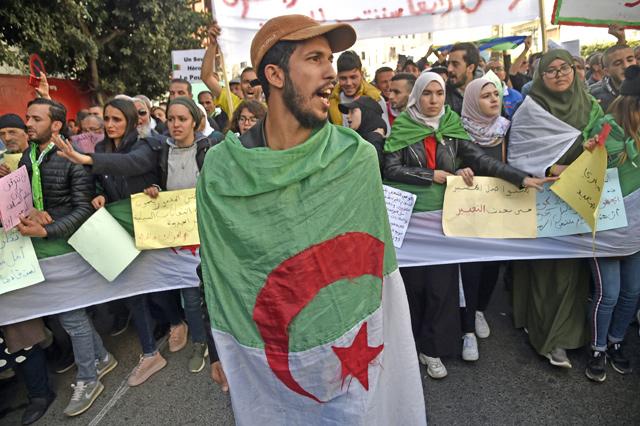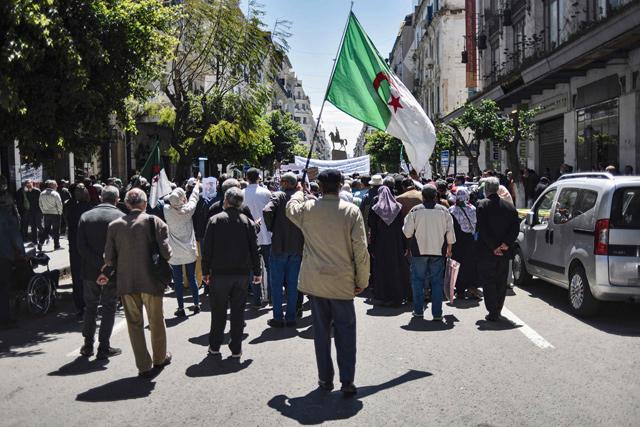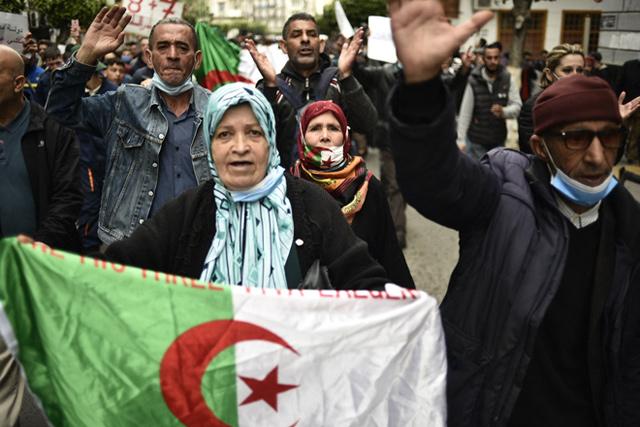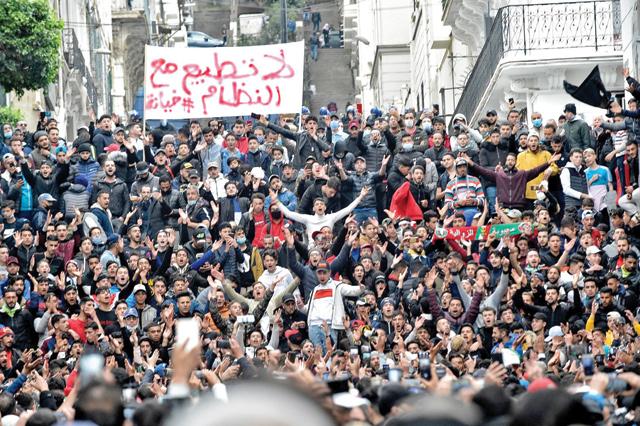You are here
Algeria city recalls protest that morphed into uprising
By AFP - Feb 20,2020 - Last updated at Feb 20,2020

Algerian students and other protesters take part in an anti-government demonstration in the capital Algiers, on Tuesday (AFP photo)
BORDJ BOU ARRERIDJ, Algeria — When a group of young people took to the streets of an Algerian industrial city a year ago, they had no idea their protest would be part of a thousands-strong movement that would topple their veteran president.
Thousands-strong protests hit the capital Algiers on February 22 last year in an outpouring of frustration after President Abdelaziz Bouteflika announced he would stand for a fifth term.
But with its own crowds and massive protest banners, it was Bordj Bou Arreridj that social media users dubbed the capital of the "Hirak" movement which ended Bouteflika's two-decade rule.
The ailing 82-year-old had been in power for two decades but had rarely been seen in public since a 2013 stroke that left him largely incapacitated.
Young Algerians, suffering massive unemployment in a country where the majority is under 30, were fed up with being represented by an octogenarian whose rare public appearances elicited mockery online.
Anger peaked when, during a meeting of the president’s party, apparatchiks addressed a portrait of Bouteflika in the absence of the ailing leader himself.
“We had become the laughing stock of the world”, said 24-year-old student Larbi.
“I didn’t think about the consequences. Anger outweighed fear.”
On February 13, days before the rallies in Algiers, residents of Bordj Bou Arreridj began their protests.
A young tailor named Brahim Lalami “went out alone with a large sign opposing the fifth term: ‘The straw that broke the camel’s back, an insult to an entire people’”, said Ali, an unemployed resident of the city.
Ali and others joined him, and the group marched through the streets of Bordj Bou Arreridj in what would become the first Hirak movement demonstration.
In a video published that day on social media, a few dozen men can be seen marching confidently and chanting, “Bouteflika, there will be no fifth term”.
Lalami went on to become a key figure in the movement.
Bouteflika resigned on April 2 after losing the support of key loyalists, including the army.
‘No fifth term’
Originally an agricultural area, the Bordj Bou Arreridj region around 170 kilometres southeast of Algiers is known as the country’s “electronics capital”.
It attracts companies including Algerian firm Condor Electronics and South Korean giant Samsung and reputedly has lower unemployment rates than elsewhere.
But it still suffers from problems affecting Algeria generally, including red tape and clientelism.
Razi, an unemployed 33-year-old, said the city had always been hostile to Abdelaziz Bouteflika.
He recalled that during the Algeria Cup football final in 2009, supporters of the local club turned their back on the president when he arrived at the stadium.
Following the February 13 demonstration, a larger protest was held three days later in Kherrata to the northeast.
On February 19, a portrait of Bouteflika was taken down from a facade of the town hall in Khenchela, further east.
Then, on February 22, protesters took to the streets of cities across the country, with thousands defying a ban on protests in the capital.
“I couldn’t believe my eyes when I saw that Algerians had come out everywhere,” Ali recalled, still emotional.
Today, the protests are smaller than in spring 2019, but the Hirak movement remains strong.
On December 12, Abdelmadjid Tebboune, Bouteflika’s former prime minister, won the country’s presidential election.
The poll was marked by massive abstention, with protesters demanding sweeping changes before a legitimate vote could be held.
The next day Tebboune called for dialogue with protesters, who nevertheless stayed on the streets.
The Hirak wants to influence the changes promised by the new president but is struggling to structure itself and agree on a future strategy.
“The revolution still hasn’t gotten rid of the ‘system’” in place since Algeria became independent in 1962, said Bilal, who is part of a forum of young protesters in Bordj Bou Arreridj.
But, he added: “We’re still here.”
Related Articles
ALGIERS — Algerian security services said on Tuesday they had arrested eight people linked to the Hirak pro-democracy protest movement over
ALGIERS — Some 2,000 Algerians, mostly students, rallied against the government on Tuesday in defiance of lockdown measures, as their two-ye
ALGIERS — Thousands of Algerians marched on Monday in the capital and other cities to mark the second anniversary of the North African natio

















